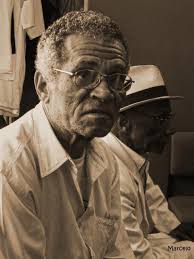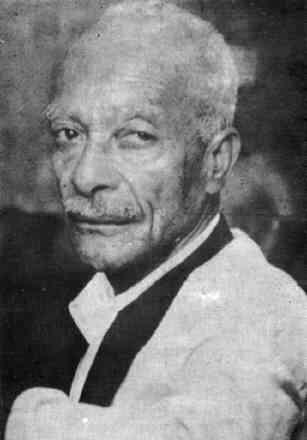Mestre Gaguinho
- Lived in: São Paulo, Brasil
- Date of Birth: 20-Jul-1935
- Date of Death: 01-Aug-2019
- Learned from: Mestre Pastinha
- Capoeira Style: Angola
Biography:
Raimundo Daniel de Paula, known as Mestre Gaguinho, was born on the island of Itaparica, Bahia, in 1935. His legacy is deeply rooted in two significant lineages: the Daniel de Paula family, who have been the custodians of the Egungun cult on Itaparica Island for many years, and the Capoeira Angola tradition, where he became a disciple of Mestre Pastinha upon joining the CECA at Pelourinho.
Mestre Gaguinho’s journey in capoeira took him to São Paulo in 1967, where he quickly gained recognition in the local capoeira circles. His rodas became legendary, and he became a vital figure in the São Paulo capoeira community. Although he never had his own academy, Mestre Gaguinho's influence was felt by all capoeiristas in the area, and even if no one formally studied under him, his teachings and spirit were felt by all who crossed his path.
Throughout his life, Mestre Gaguinho was known for his warm presence at the rodas, especially at Rua Turiassú, where he would often arrive early, bring his viola, sing, and demonstrate his unique footwork to those fortunate enough to play with him. His migration to São Paulo allowed him to meet and exchange teachings with many renowned masters, including Brasília, Joel, Suassuna, and others.
In addition to his contributions to capoeira, Mestre Gaguinho was also honored as the Zelador da Capoeira Paulista and recognized for his invaluable contributions to the culture and traditions of capoeira. His life and legacy continue to inspire the capoeira community, and his impact is remembered and celebrated by those who had the privilege of learning from him, either directly or indirectly.
Mestre Gaguinho’s spirit lives on in all of us who carry the teachings and values he shared through his music, movements, and love for capoeira. His legacy is immortalized in the hearts and minds of the capoeira community, especially in São Paulo, where he left an indelible mark on the tradition.

